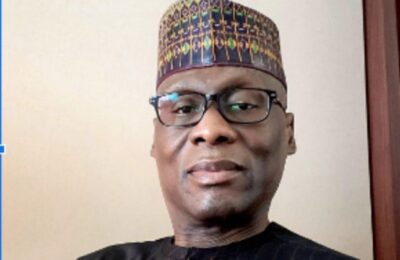When Che Guevara was hunted down in the Bolivian mountains, betrayed by a shepherd whose fear for his flock outweighed loyalty to liberation, history recorded more than just the end of a revolutionary. It exposed the brutal irony that those who shed their blood for the people are often the first to be forsaken by them. Asked why he betrayed the man who had fought for his rights, the shepherd’s reply was chilling in its simplicity: “His battles against the enemy frightened my sheep.”
Centuries before, in Egypt, General Mohamed Karim stood in chains before Napoleon Bonaparte. He had led his people in resisting French occupation, but when given the chance to save his life by raising money from the merchants he had defended, they abandoned him. They saw in him not a saviour but the author of their suffering. Napoleon’s words as he sentenced Karim resound with eternal cruelty: “I shall not kill you because you fought against us, but because you sacrificed yourself for a cowardly people—one that values commerce above liberty.”
These two tales — one from Latin America, the other from Africa — ripples painfully in the politics of Kogi East today. For generations, the Igala people were a political powerhouse in Nigeria’s Middle Belt, shaping the destiny of the state and influencing national debates. But today, their story is one of decline, disunity, and betrayal — or perhaps more fittingly, of being sold out.
Our ancestors said, Atoogbo !! ‘Ene omune nekeme t’oma oji Ane ewa Igala le n! (Woe to you! A stranger cannot be better than the child of Igala soil) as a warning. Yet today, selfish elites have aberrated this ancestral wisdom into a counterfeit proverb, twisting it into a creed of surrender. “Ene omune me” — a stranger is better for us or lead us.
What was once a cry of caution has been perverted to justify the selling out of their own people. In fact, it has become a curse in Igalaland where the very sons and daughters who should be defending their land and preserving their heritage have chosen instead to elevate strangers, outsiders, and opportunists, while selling out those who carried their burdens. Heroes are sacrificed at the altar of selfishness. Patriots are discarded for petty gain. The shepherd has once again betrayed the warrior who protected his flock.
This is not merely political misfortune; it is a cultural tragedy. Betrayal corrodes the spirit of a people. Theologian Reinhold Niebuhr once said, “A nation which cannot preserve loyalty will soon destroy its liberty.” For Kogi East, the erosion of loyalty has turned political power into political begging. Once kings in the political palace, the Igala have now become supplicants at the doors of strangers.
Chinua Achebe warned in The Trouble with Nigeria but in Kogi East, the deeper trouble is that of followership — a people willing to sell out their best for crumbs. Leaders are not simply born or imposed; they are chosen, accepted, sustained by the people. When the people choose to forsake their own, to cast off their finest, to turn their heroes into scapegoats, they reap the harvest of humiliation.
Nelson Mandela once declared, “To betray a people is to condemn them to perpetual slavery.” That line could have been written for Kogi East. The pattern is painfully clear: heroes who speak truth are deserted, while opportunists who promise short-term gains are celebrated. Elections become auctions. Political offices become commodities. Integrity becomes a liability, and betrayal becomes a career path.
History is unforgiving to those who sell out their own. The Israelites of old, when faced with Roman oppression, chose Barabbas over Christ — a decision driven by fear, envy, and shortsightedness. In the Qur’an, Surah Al-Imran (3:118) warns believers not to take as allies those who will only betray them, for such betrayal corrodes the very foundation of a people’s trust in themselves. Betrayal is never neutral; it plants generational curses.
And yet, the Kogi East tragedy is not inevitable. What betrayal destroys, loyalty can rebuild. But it requires brutal honesty. It requires calling betrayal by its true names — sellout, desertion, abandonment, treachery, perfidy. It requires facing the uncomfortable truth that “Ene omune me” has become a self-fulfilling prophecy, not because strangers are inherently better, but because the people have failed to honour their own.
The Igala once commanded respect across Nigeria, not merely for their numbers but for their unity and pride. Today, that pride is fractured. Strangers dictate the pace. Outsiders harvest the fruits. The shepherds of Kogi East still guard their sheep, but they sell out their generals. And in doing so, they betray not only men but destiny itself.
If history teaches anything, it is that betrayal is not the end, but a turning point. Nations and peoples rise again when they repent of betrayal and recover the courage to stand with their own. For Kogi East, that means rejecting the curse of “Ene omune me” and rediscovering the dignity of loyalty. It means refusing to sell out tomorrow for today’s crumbs. It means standing with heroes, even when their battles frighten the sheep.
As Bishop Matthew Kukah once warned, “When a people choose silence in the face of injustice, they endorse their own chains.” Silence and betrayal are twin chains binding Kogi East today. The question is whether the people will break them.
For in the end, history will not remember the strangers who ruled Kogi East, nor the merchants who sold out their heroes. It will remember whether the people chose loyalty over treachery, courage over cowardice, destiny over fear. And it will ask whether they remained shepherds guarding sheep — or citizens willing to stand by their heroes.
– Inah Boniface Ocholi writes from Ayah – Igalamela/Odolu LGA, Kogi state.
08152094428 (SMS Only)




